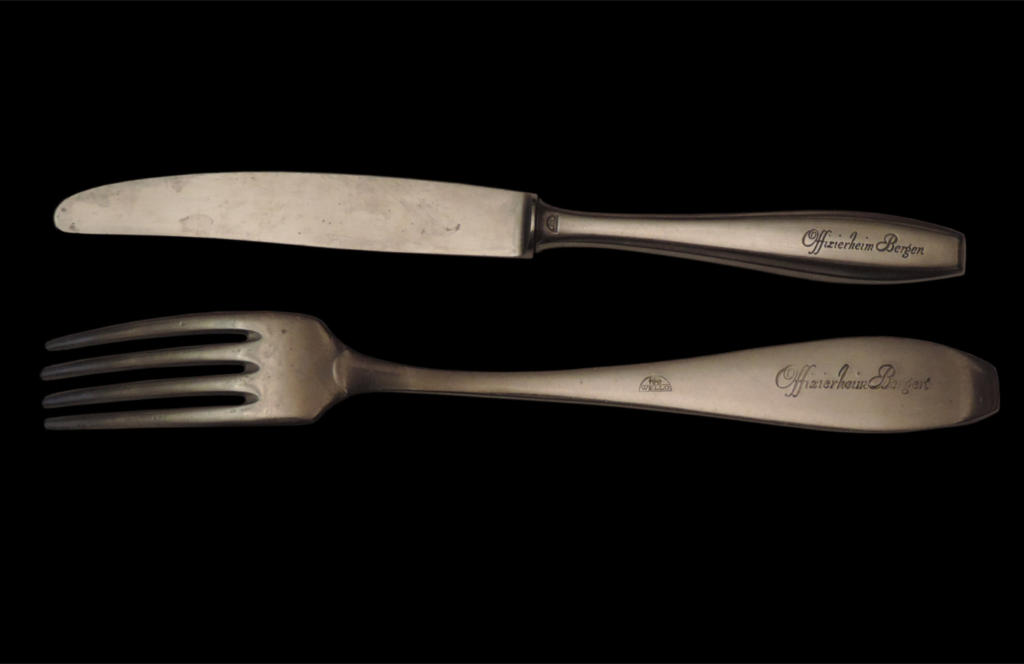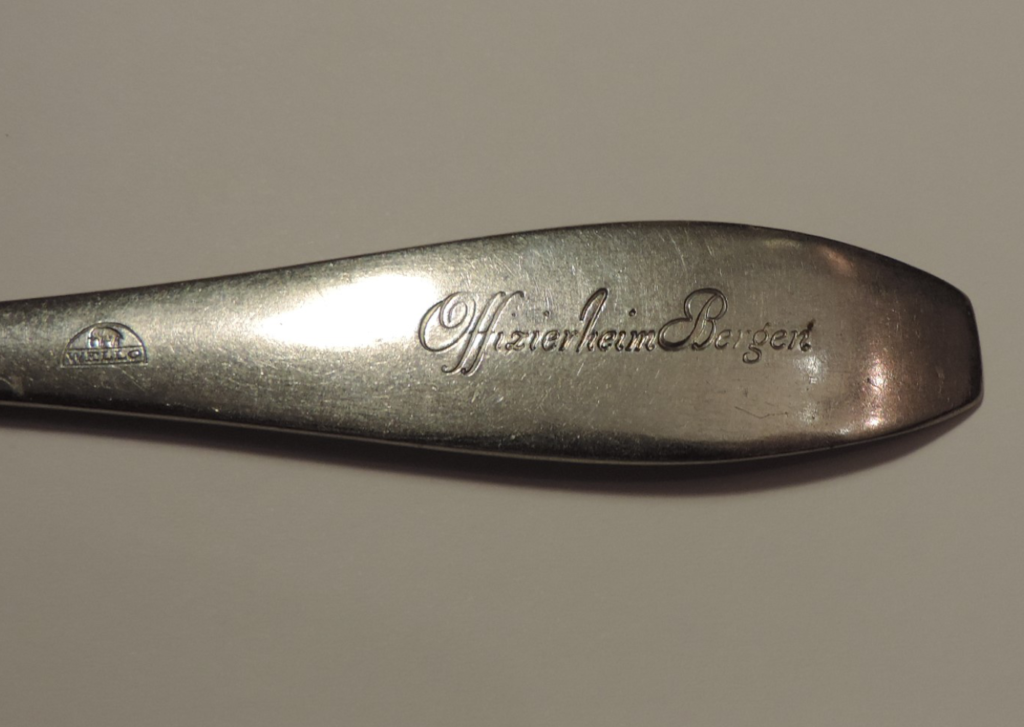CUTLERY FROM THE OFFICERS’ MESS OF THE BERGEN-BELSEN CONCENTRATION CAMP / János Solt
My mother was born in Budapest in 1913 and graduated from secondary school in 1931. She learned English and German at school, and after passing her final exams, she obtained a position as an administrator at the First English-Hungarian Thread Factory. She worked there until she had to be dismissed, as the factory’s last Jewish employee, because of the anti-Jewish laws. She had a Scottish boss, and she was well loved by her co-workers. She used English at her workplace, which later turned out to be a great advantage.
My mother was carried off to the concentration camp on 9 November 1944. I do not know where she was arrested, or how she got into the transport headed to Bergen-Belsen. She never spoke about her “experiences” and circumstances there, not even a word – and this is not an exaggeration. All I heard were a few passing references to German Shepherds, the Appelplatz, and the fact that they survived because the crematoriums in the camp had broken down by the end of 1944. There was one other thing she let fall: that the prisoners fought over the potato peels thrown from the guards’ kitchen. This story also appears in Péter Gárdos’ book Fever at Dawn, written about the author’s father and mother, who were also prisoner at Bergen-Belsen. Gárdos also writes about this horrible incident with the potato peels.
The camp was liberated by English troops in April 1945. My mother weighed little more than thirty kilograms, and she had typhoid fever. She could not eat, not even a bite, and this saved her life, because those who were able to eat, died, unable to digest the food. My mother was treated in an English military hospital. She used her English and German knowledge to act as an interpreter during the interrogation of the German prisoners of war until September 1945. I do not know why she stopped then, perhaps the interrogations were over, or perhaps she had had enough, she never told me. But in September 1945 she finally returned home and got another job at the First English-Hungarian Thread Factory. This was very useful in those inflation-ridden times, because she received most of her salary in yarn, and yarn was hard currency then, when all Budapest and all Hungary wore rags. This helped the family to survive, and my grandfather was able to reopen his grocer’s shop. My mother continued working at the First English-Hungarian Thread Factory until it was nationalized, and even after that for a while. Later she worked at the Ministry, but she was involved with the textile industry all her life.
She could keep the fork and the dessert knife as keepsakes to remember her time at the English military camp. The words “Offizierheim Bergen” are engraved on both utensils, which means that they come from the officers’ mess. When the camp was liberated, the official documents were completed partly in Hungarian and partly in English. My mother kept another object: a spool of thread manufactured by the First English-Hungarian Thread Factory.
My father was called up for labour service in 1941, but he could come home on a few occasions, and we still have a few of his leave permits. We have no idea where and how he died in the end. My mother never remarried; thus, I have no siblings. My grandmother, my father’s mother, waited for her son’s return to the day of her death.





